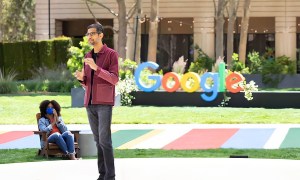
Google wants its users getting the most out of their Android devices. To ensure people will continue to tap away at their smartphones, Google showed off Project Volta, a part of Android L focused on optimizing the battery life in every part of Android.
Project Volta consists of three methods that will help developers improve battery performance:
- Battery Historian: The first is a visual timeline called Battery Historian. The tool is designed to measure battery discharge by helping developers “visualize on a time axis the battery usage information.” This allows developers to pinpoint issues and fix it to improve battery life.
- Improving battery consumption within apps: A new JobScheduler API has also been added as a part of Project Volta to help improve battery consumption occurring within apps. The API brings together non-urgent network requests from multiple apps to increase efficiency. With the new API, the platform can keep the radio asleep a higher percent of the time to save power. It can also be used to schedule maintenance tasks while the phone is plugged into the charger.
- Battery Saver mode: The final piece of Project Volta is the new Battery Saver mode. It can be used to clock down the CPU and screen refresh rate, or turn off background data. Battery Saver mode can be triggered manually or set to start automatically when the battery reaches a certain percentage. Google promises the mode can extend battery life by 90 minutes of usage.
Project Volta and the other parts of Android L will be available to developers starting today.

